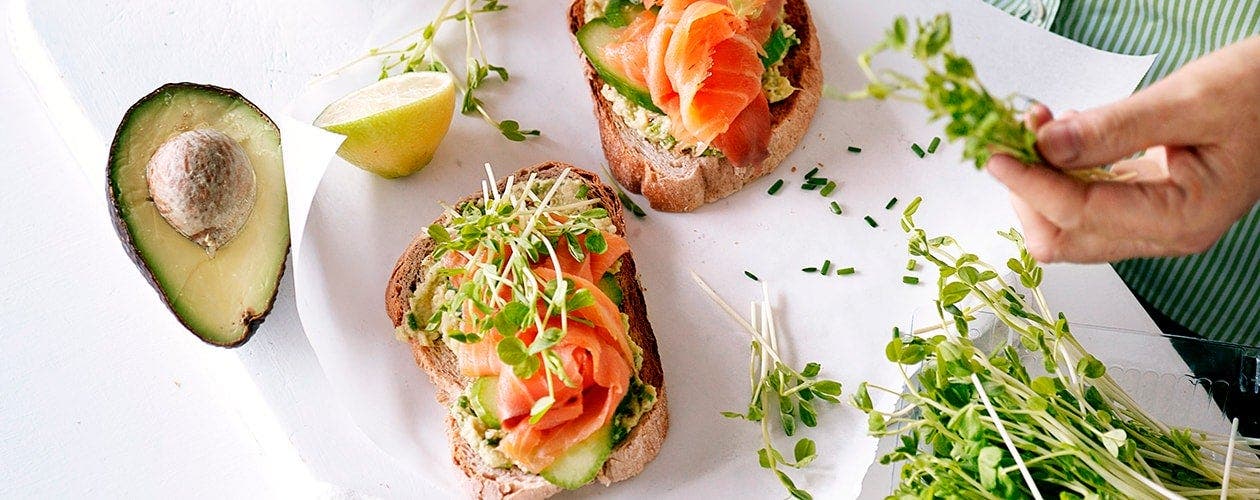Food & Nutrition
Cooking tips for a healthy heart
Maintain a healthier heart by reducing your salt, added sugar and unhealthy fats and oil. Learn how to do it using these helpful tips.
By WeightWatchers
Published 21 June 2018


How to reduce your salt intake
- Use herbs and spices to enhance flavour instead of seasoning with salt.
- Use reduced-salt products wherever possible (such as reduced-salt soy sauce and stocks).
- If using canned vegetables or legumes, choose no-added-salt varieties or rinse in water before cooking to remove excess salt.
- Choose canned fish in spring-water instead of brine.
How to reduce your added sugar intake
- Limit added sugar and sources of added sugar (such as honey, jams and syrups).
- Choose foods with no added sugar where possible (such as yoghurts and fruit juices).
- If using canned fruits, choose no-added-sugar options or fruit canned in water or natural juices. Reduce your intake of fruit canned in syrup.
- If using dried fruit, you only need a small amount to add sweetness (aim for 30g).
How to reduce unhealthy fat and oil intake
- Use non-stick baking paper or extra-virgin olive oil spray on baking trays, instead of greasing with butter.
- Grill, steam, boil, poach, bake, stew or stir-fry – limit shallow or deep frying.
- Roast meats on a rack to allow fat to drain away.
- Skim fat off the top of stews and soups (it’s easier once they’ve cooled).
- Trim all visible fat from meat and chicken.
- Choose unrefined polyunsaturated and monounsaturated oils and spreads. Use extra-virgin olive oil where possible.
- Limit sources of saturated fat, such as butter, ghee, lard or palm/coconut oils.
- Swap bottled salad dressings for natural flavourings, such as herbs, lemon juice, vinegar (balsamic, apple cider, red and white) or extra-virgin olive oil.
- Garnish vegetables with unsalted nuts, seeds, herbs and spices, rather than butter, cream or cheese sauces.
Look out for hidden salt and added sugar in packaged foods
Along with choosing the right dietary fats you need to keep an eye on salt and added sugar. Here’s why:
- Too much salt = High blood pressure caused by fluid retention.
- Where it’s hidden: Takeaway foods and processed foods, such as deli meats, meat/fish spreads, savoury snacks, soups, sauces, noodles, stocks and canned products.
- Aim for less than 2300mg sodium per day (from all food, not just the salt shaker). 1 teaspoon = 2000mg.
- Too much added sugar = Higher kilojoule intakes and may lead to weight gain.
- Where it’s hidden: Soft drinks, cordials, sports/energy drinks, juices, cakes, sweet biscuits, sugary breakfast cereals, confectionery, ice- cream, flavoured yoghurts and even bottled sauces and soups.
- Aim for less than 50g per day. 1 teaspoon = 4g.
